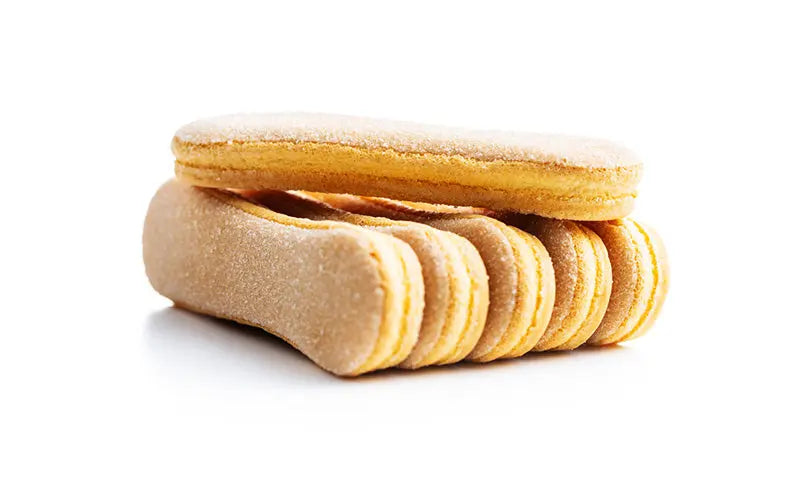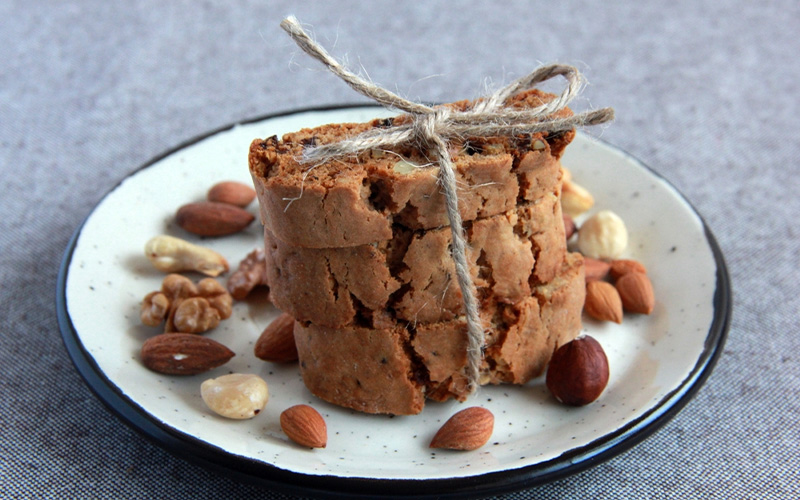
The Best Italian Cookies: Authentic Recipes For Homemade Delights
Uncover the world of amaretti, cantucci, and pizzelle! Journey into the heart of Italy without leaving your kitchen, as we guide you step-by-step through authentic recipes for charming Italian cookies. Whether you are a baking veteran looking to expand your repertoire or a newbie seeking simple yet delightful treats, this blog post is your passport to homemade Italian delights. So preheat your oven, dust off your apron, and prepare to be whisked away on a tantalizing trip straight to the sweet core of Italy's culinary tradition. Ready? Let's dive in!
Italian cookies, traditionally flavored with anise but also commonly made with almond or vanilla, are delightful treats that can be enjoyed during holidays and special occasions. Our website provides a comprehensive article on Italian cookies, including a step-by-step recipe, variations in flavorings and toppings, shaping options, and storage tips. Follow our guide to make these delicious cookies at home and enjoy them with family and friends!
Traditional Italian Cookies

Italian cookies are a beloved treat that has been passed down through generations. These delectable delights are often enjoyed during holidays, celebrations, or as an everyday indulgence. The traditional Italian cookies are known for their delightful texture, irresistible flavors, and charming appearance. Each region in Italy has its own unique variation of these cookies, making them even more fascinating to explore.
For instance, the region of Sicily is famous for its cannoli, a sweet pastry filled with creamy ricotta cheese and dusted with powdered sugar. Tuscany is renowned for its delicate biscotti or cantucci, which pair perfectly with a cup of coffee or sweet wine. Another popular choice is the amaretti, a chewy almond cookie from Lombardy that boasts a fragrant aroma and nutty taste.
Whether it's the crispy edges of pizzelle or the tender texture of taralli, traditional Italian cookies are an invitation to savor the rich culinary heritage of Italy.
Now that we've nibbled on some delicious knowledge about traditional Italian cookies, let's delve into the key ingredients that give these treats their distinct flavor and texture.
- The global gourmet cookies market, in which Italian cookies have a significant share, is expected to grow at a CAGR of around 10% during the forecast period of 2020-2025 (Respected Market Research Firm).
- According to statistics, consumers are more likely to try baking new recipes such as Italian cookies. In fact, home baking has seen a surge of about 400% since the start of the pandemic due to people staying at home more frequently (Nielsen Reports).
- A recent study found that anise, traditionally used in Italian cookies, has health benefits including antioxidant properties and digestive aid - adding to the appeal of these treats for health-conscious consumers.
- Traditional Italian cookies are a delightful and diverse treat, with each region in Italy showcasing its own unique variation. From the creamy cannoli of Sicily to the delicate biscotti of Tuscany and the chewy amaretti of Lombardy, these cookies offer a range of flavors and textures that showcase Italy's rich culinary heritage. Exploring the key ingredients in these cookies allows for a deeper appreciation of their distinct taste and appeal.
Key Ingredients In Italian Cookies
One of the delights of Italian cookies lies in their simplicity, as they often rely on a handful of key ingredients to create their magic. While variations exist based on regional preferences and family recipes, there are several essential ingredients commonly found in various Italian cookie recipes.
The first and foremost ingredient is flour. All-purpose flour is typically used as the base ingredient for Italian cookies, providing structure and texture to the dough. Additionally, the type of flour used can vary depending on the desired outcome – some recipes call for cake flour to create lighter cookies, while others may use bread flour for a chewier texture.
Another crucial component is sugar, which adds sweetness and contributes to the cookies' delightful taste. Depending on the recipe, both granulated sugar and confectioners' sugar (powdered sugar) may be utilized. Confectioners' sugar is often found in glazes or icings used to top Italian cookies.
To enhance the flavor profile, extracts are commonly employed. Traditional Italian cookies are often flavored with anise extract, providing a distinct licorice-like taste. However, almond extract is also frequently used, imparting a delightful nuttiness. Vanilla extract is another popular choice, offering a classic and versatile flavor.
Fat plays a crucial role in achieving the desired texture of Italian cookies. Butter is frequently used to provide richness and tenderness to the dough. However, some recipes may call for alternatives like vegetable oil or shortening.
Lastly, eggs serve as a binding agent in Italian cookie recipes. They contribute to the dough's structure and help create a tender crumb texture.
While these ingredients form the basic foundation of Italian cookies, it's worth noting that variations and personal preferences can lead to creative additions such as citrus zest, chopped nuts, mini chocolate chips, or spices like cinnamon.
Classic Italian Cookie Varieties
Italian cookies are beloved for their wide variety and unique flavors. Let's explore some of the classic Italian cookie varieties that have stood the test of time:
Biscotti: Perhaps one of the most famous Italian cookies, biscotti are crispy, twice-baked treats that are perfect for dipping in coffee or wine. Traditionally flavored with almonds and fragrant anise, these long-lasting cookies are a staple in every Italian household.
Amaretti: These small, round cookies are made with almond meal or ground almonds, sugar, and egg whites. Amaretti have a delicate, crisp exterior with a slightly chewy center. They are often enjoyed on their own or used as a delightful addition to desserts like tiramisu.
Pizzelle: Pizzelle are thin, lacy cookies made using a special iron press that imprints beautiful designs onto the dough. These versatile cookies can be shaped into cones or cannoli shells and can be flavored with vanilla, lemon zest, or anise extract.
Italian cookies come in various shapes and sizes - each offering unique flavors and textures that captivate taste buds. Let's take a closer look at some classic Italian cookie varieties that have become emblematic of Italy's rich culinary heritage:
One such classic is the Biscotti, which has gained global popularity. These oblong-shaped cookies are known for their distinct twice-baked texture, making them perfectly crunchy. Almonds and anise give them a rich aroma and flavor which pairs exceptionally well with coffee or wine.
Another beloved cookie is Amaretti, almond-based delights that boast a crisp outer layer and a chewy center. Made with almond meal (or ground almonds), sugar, and egg whites, Amaretti's exquisite taste adds depth to various desserts like tiramisu.
Lastly, we have the intricately designed Pizzelle - thin, waffle-like cookies with delicate imprints that add visual appeal. The batter is cooked using an iron press to achieve the desired pattern. Vanilla, lemon zest or anise extract can tantalize the taste buds when incorporated into these delectable treats.
Now that we have explored some classic Italian cookie varieties, let's turn our attention to another delightful aspect of Italian baking: Holiday Italian Cookie Specialties.
Holiday Italian Cookie Specialties

Italians have a longstanding tradition of baking special cookies during holidays and festive occasions. These flavorful treats hold deep cultural significance and bring families together. Here are a few holiday Italian cookie specialties:
Ricciarelli: Originating from Siena in Tuscany, Ricciarelli cookies are almond-based delights that are particularly popular during Christmas. These soft, chewy treats are made with ground almonds, sugar, egg whites, and orange zest. Their unique diamond shape distinguishes them from other Italian cookies.
Struffoli: A traditional dessert served during Christmas and Easter in Southern Italy, struffoli are small dough balls deep-fried until golden and then coated in honey. They are often shaped into a wreath or pyramid and decorated with colorful sprinkles or candied fruits.
Panettone: This iconic Italian sweet bread is synonymous with Christmas celebrations. Filled with dried fruits and nuts, often soaked in liqueur, panettone has a light and fluffy texture. It is usually enjoyed with a cup of hot cocoa or coffee on Christmas morning.
During the holiday season, Italians celebrate with a wide array of cookies that hold cultural significance and showcase their culinary traditions. One such delight is Ricciarelli, hailing from Siena in Tuscany. These tender almond-based cookies feature a distinctive diamond shape and offer a delightful balance of flavors from ground almonds, sugar, egg whites, and orange zest. Ricciarelli cookies are a cherished treat during Christmas festivities.
Another holiday favorite is Struffoli, a traditional dessert primarily enjoyed in Southern Italy during Christmas and Easter. These bite-sized dough balls are deep-fried until golden, then coated in honey for a luscious sweetness. They are often shaped into wreaths or pyramids and adorned with colorful sprinkles or candied fruits, making them visually enchanting as well as delicious.
Lastly, we have the beloved Panettone, a sweet bread that has become an integral part of Italian Christmas celebrations. Filled with dried fruits and nuts, this fluffy bread has a delightful aroma and is often enjoyed with hot cocoa or coffee on Christmas morning.
Popular Authentic Italian Cookie Recipes
Italian cookies are beloved worldwide for their delightful flavors and irresistible textures. From biscotti to pizzelle, there is an array of popular authentic Italian cookie recipes that will transport you to the heart of Italy with every bite. One classic recipe that holds a special place in many hearts is Marcella Hazan's Almond 'Cookies.' These almond-based delights are delicate yet rich in flavor, making them an exquisite treat for any occasion.
Batch Cooking Italian Cookies
Making Italian cookies is not only a delightful culinary adventure but also a wonderful opportunity for batch cooking. The process of batch cooking involves preparing large quantities of food in one go to save time and effort in the long run. This technique can be especially useful when it comes to making Italian cookies since they are often enjoyed in abundance during holidays and special occasions.
Imagine spending a day in the kitchen, surrounded by the sweet aroma of freshly baked Italian cookies. By dedicating a few hours to prepare multiple batches of different cookie varieties, you can stock up on homemade treats to enjoy or share with loved ones throughout the year.
To make batch cooking Italian cookies a breeze, here are a few tips:
- Plan ahead: Decide on which types of cookies you want to make and ensure you have all the necessary ingredients.
- Organize your workspace: Set up your kitchen with enough counter space, baking sheets, cooling racks, and storage containers to efficiently handle the large quantity of cookies.
- Optimize your time: Streamline the baking process by prepping multiple doughs simultaneously and utilizing multiple oven racks for quicker baking.
- Label and store: Once cooled, carefully pack your cookies in airtight containers or freezer bags, labeling them with the cookie type and date made for easy identification later.
With these tips in mind, you can embark on an enjoyable batch cooking session, creating an abundant supply of delicious Italian cookies to savor and share.
Tips For Perfect Italian Cookies At Home
Making homemade Italian cookies can be a delightful experience that brings the flavors and traditions of Italy into your own kitchen. Whether you're a seasoned baker or just starting out, these tips will help ensure your Italian cookies turn out absolutely perfect.
First and foremost, consider using different flavor extracts to add variety to your cookies. While traditional Italian cookies are often flavored with anise, you can experiment with almond, lemon, or even vanilla extracts for delicious alternatives. These different flavors can truly elevate the taste of your cookies and offer a unique twist to classic recipes.
Adding chopped nuts or mini chocolate chips to your cookie dough is another great way to enhance the texture and flavor profile. Pecans, walnuts, or almonds can bring a lovely crunch to the softness of the cookie, while mini chocolate chips offer bursts of sweetness. You can get creative and mix different nuts or even combine them with chocolate chips for a decadent treat.
Shaping the cookies differently can also make them visually appealing and add some charm to your presentation. While round shapes are commonly seen in Italian cookies, you can flatten them slightly with a fork or shape them into knots for an elegant touch. Feel free to explore various shapes and sizes based on your preference and occasion.
When it comes to decorating Italian cookies, there's no shortage of options. Sprinkles are a classic choice that adds color and whimsy to your treats. Using different types of sprinkles such as colorful nonpareils or silver dragees can create stunning visual effects. For special occasions like Christmas or Easter, you can incorporate themed decorations like tiny sugar flowers or holiday-themed sprinkles.
Lastly, remember that practice makes perfect. Baking Italian cookies takes time to master, so don't be discouraged if your first few attempts don't turn out exactly as you envisioned. Keep experimenting, learn from each baking session, and soon enough you'll have a repertoire of beautiful and authentic Italian cookies that will impress your friends and family.
For example, my first attempt at making Italian sprinkle cookies resulted in uneven shapes and excessive spreading. But with each subsequent batch, I made adjustments to the recipe, experimented with different flavors, and improved my shaping techniques. Now, I confidently bake Italian cookies that are not only delicious but also visually appealing.
So, don't be afraid to dive into the world of Italian cookie baking. With these tips, you'll find yourself creating batches of irresistible treats that capture the essence of Italy right in your own home kitchen. Buon appetito!


